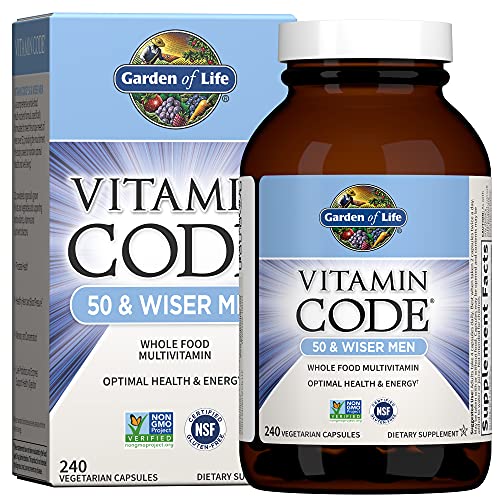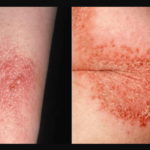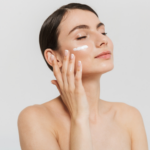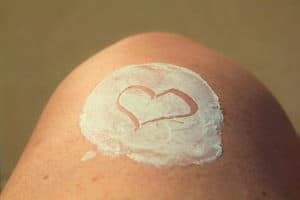Dry, aging skin in this day and age is one of the things both men and women cannot escape from, especially with the pollution and the ever-changing climate.
There are a lot of products or supplements in the market today containing various vitamins and minerals to boost skin protection. So, what are the best vitamins for dry, aging skin?
Here are the 7 best vitamins for dry, aging skin:
1. Vitamin E
2. Vitamin C
3. Vitamin A
4. Zinc
5. Selenium
6. Coenzyme Q10
7. Glucosamine
Read on to learn more about these vitamins and how they can help rejuvenate and bring back the life to your dry, aging skin.
Also, for an excellent vitamin for dry, aging skin, take a look at our top pick, the Garden of Life Vitamin Code. Garden of Life includes the best ingredients along with live probiotics, enzymes, and antioxidants for greater absorption.
Click here to see The Garden of Life Women’s Multi on Amazon.
Click here to see the Garden of Life Men’s Multi on Amazon.
Best Vitamins for Dry, Aging Skin – Our Top 7 Picks
Taking good care of our skin is not something being actively taught in school. So no one really bothers to check on their skin, if not for marketing campaigns of big brands in skincare.
But it does not have to cost too much to be able to care for the largest and fastest-growing organ in your body.
Vitamins E, C, A, zinc, selenium, coenzyme 10, and glucosamine are top on our list as they each provide specific benefits to care for the skin. Let us dive into each of these to learn more.
1. Vitamin E
This antioxidant tops our list of best vitamins for dry, aging skin. Experts swear by its effectiveness when it comes to protecting cell membranes and preventing damage to enzymes linked to these membranes.
Vitamin E is also naturally found in a lot of items easily found in our household pantries, such as dairy products, oats, and other grains, nuts, and sunflower oil.
A lot of new research has shown that applying vitamin E to the skin reduces sun exposure damage and can help limit the production of cancer-causing cells, which is why there has been an influx of vitamin E in skincare products such as creams and face masks.
Supplementation of about 400 milligrams of vitamin E per day is found to improve skin texture and lessen photodamage and wrinkles. It also disables free radicals, which can cause skin damage over time.
2. Vitamin C
Like vitamin E, vitamin C is a powerful antioxidant that protects your skin from free radicals that can cause skin cancer. It helps collagen hold and retains its shape longer, which translates to healthier, younger-looking skin.
Not having the proper amount of vitamin C in your system causes bleeding gums, easily bruised skin, and slow healing sores.
Whichever way you take your vitamin C – whether oral or topical – can decrease oxidative stress in cells, helping promote natural and healthy growth.
A recommended dosage of 100 milligrams of vitamin C per day has been proven to help cells regenerate healthier skin cells which translates to a noticeably more radiant-looking skin with little to no wrinkles.
Like vitamin E, vitamin C is also available topically as it is incorporated in many moisturizers today. Most recently, there has also been a big market for vitamin C serums and face oils.
3. Vitamin A
Vitamin A is essential to both the top and bottom layers of the skin. As an antioxidant, it provides some protection against sunburn. It blocks sun damage by interjecting in the breaking down of collagen.
Not only that, but it also helps oil glands around the hair follicles work better while promoting a quicker healing process for simple cuts and scrapes.
A deficiency in vitamin A can cause the skin to become drier and itchier and sometimes even cause bumps. Also, note that while vitamin A can help protect the skin from sunburn, it is still best to wear sunscreen for overall protection.
Vitamin A is added in many cosmeceutical products, especially in anti-aging creams. However, it is the prescription topical retinoids that are best known to boost collagen production and reduce the appearance of wrinkles and fine lines.
4. Zinc
Zinc is most needed by the skin in healing after an injury. The outer layer of the skin has about five (5) times more zinc than the bottom layer, and this reserve helps keep cell walls stable as they divide and grow more normal skin cells.
This mineral is perhaps one of the best vitamins for aging skin because it is effective in protecting the skin from UV damage and has a very specific and fascinating behavior in relation to other metals (i.e., iron and copper) in the body.
Like vitamins E, C and A, it also acts as an antioxidant. Having less than optimal levels of zinc in the body can cause eczema, which is a form of an itchy rash. No amount of moisturizers and steroids can heal this itchy rash if the cause is a deficiency in zinc.
The below video gives some great tips and insight on vitamins and supplements that help with aging and overall health:
5. Selenium
Selenium is a naturally occurring mineral in soil and a few foods such as garlic, eggs, seafood, and whole-grain cereals. People may only need a trace amount of selenium, but this small amount plays a big role when it comes to our metabolism. Its antioxidant properties will protect cells from damage such as skin cancer caused by sun exposure.
It makes our list of best vitamins for dry skin as it is found to preserve skin elasticity and effectively slows down the aging and hardening of cell tissues due to oxidation. Recent animal studies have shown that selenium provided protection against UV damage and slowed skin cancer development in animals.
Although these results fared well in animals, more research and information are admittedly needed to support its effects on humans.
6. Coenzyme Q10
Our bodies already produce the antioxidant Coenzyme Q10 (CoQ10) to protect our cells against free radicals. The problem is, our bodies produce less Coenzyme Q10 as we grow older, which results in our skin becoming more vulnerable to damage.
Coenzyme Q10 deficiency may lead to more wrinkles and crow’s feet as well as dryness in the skin.
This is the reason why many beauty products (such as toners, creams, and gels) and supplements in the market today have Coenzyme Q10. 200 milligrams per day of this antioxidant can support the overall appearance and healthy look of your skin. It further prevents wrinkle growth in areas where you would typically see them.
7. Glucosamine
Another naturally produced compound found in our bodies is glucosamine. This substance is found in the tough tissue that acts as a cushion in-between joints known as cartilage. It is harvested from shellfish shells or is lab-made to become the supplement we know today.
There are a lot of glucosamine supplement forms, including glucosamine sulfate, glucosamine hydrochloride, and N-acetyl glucosamine.
Out of the many glucosamine supplement forms, glucosamine sulfate is the specific one used to help provide better skin health. It is also often taken to treat osteoarthritis – the painful condition caused by inflammation, breakdown, and eventual loss of cartilage.
The many uses of glucosamine are what made it in our list of the best vitamins for dry, aging skin.
A recommended dose of 1,500 milligrams per day of glucosamine sulfate is found to accelerate wound healing and decrease the appearance of wrinkles. It also promotes skin hydration.
It is also considered as the building block for hyaluronic acid, which is credited for making the skin look and feel plumper.
The below video gives great insight into glucosamine and how it can prevent aging, dry skin:
Conclusion – Best Vitamins for Dry, Aging Skin
So, what are the best vitamins for dry, aging skin? The vitamins in our list each have their own properties that make them the best vitamins to help with anti-aging.
It may not be a comprehensive list, but these vitamins and minerals are the ones experts swear by and are backed by years of continued research and developmental studies.
To recap, here are our top 7 picks for the best vitamins for dry, aging skin:
1. Vitamin E
2. Vitamin C
3. Vitamin A
4. Zinc
5. Selenium
6. Coenzyme Q10
7. Glucosamine
All these minerals and vitamins are helpful in their own way, but some people may have a different reaction to each of them. The secret is to know what your body’s deficiencies are and be wary of any changes that are happening, especially to your skin.
You know your body more than anyone, and certain changes, such as dryness and aging, may be alleviated by these vitamins but may also be aggravated if, say, you are allergic to a particular substance.
It is best to have your skin assessed and checked by a dermatologist to know what exactly your needs are. Listen and learn from experts and never self-medicate. You need not break the bank when it comes to taking care of your skin. You just have to know what you need, when you need it.
Another tip to having better skin health is to always have a proper diet. Eat foods rich with the vitamins we mentioned in our list, such as vitamins E, C, and A. You may also take supplements that contain these vitamins to help boost the production of healthier skin cells.
In a few months’ time, you will find that your skin is no longer dry and aging but softer, more supple, and even younger-looking.
Related reading:
Can I Take Vitamin A and Zinc Together?







![Neutral Skin Tone Defined [and Best Colors for Neutral Skin] neutral skin tone](https://skincaregeeks.com/wp-content/uploads/2021/05/neutral-skin-tone-150x150.png)






